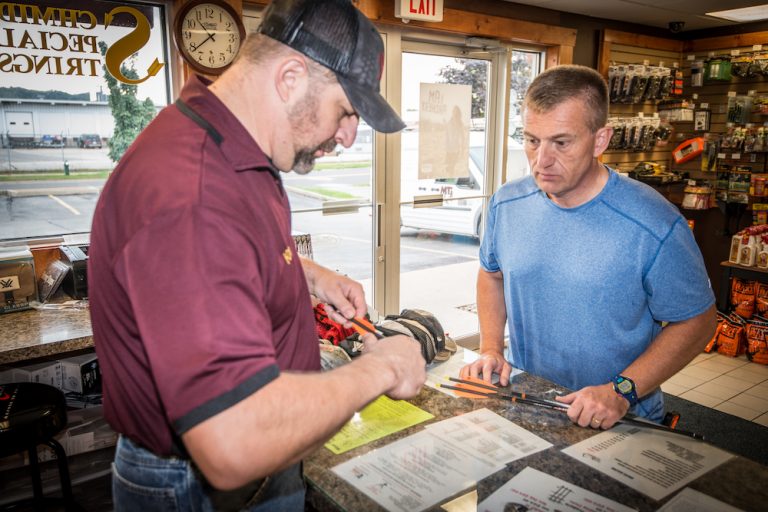Understand Buying Mode
The savvy salesman understands the science behind “buying mode.” Purchasing products isn’t just fun; it leads to a chemical reaction in the brain. As soon as customers commit to making a purchase they get a rush of dopamine, the chemical that makes you feel good. This is when they’re most prone to making additional purchases. It’s where the term “retail therapy” comes from. When a customer is feeling good about a purchase, it’s an opportunity to encourage complementary purchases. Amazon reports up to 35% of its revenue comes from cross-selling.
Make Customer Service the Top Priority
Archery and bowhunting lend themselves to upselling and cross-selling. If a customer is buying their first bow, they’ll likely need to purchase accessories like a sight, arrows and release aid. As their customer service representative, you want them to get everything they need. You also want to see them succeed, and that can mean outfitting them with top-of-the-line equipment. However, if you approach every customer interaction as a sales pitch, you risk failing at your main objective, customer service.
Good customer service means serving the customer’s needs, not your own. The best customer service reps understand the balance of doing their job and helping the customer. This looks like honesty and understanding.
Picture a customer who comes into the shop to buy arrows to fit their used, but new to them, bow. You double-check and discover that the draw length and draw weight fit the individual. It’s also outfitted with all the accessories. However, it’s all old and you have new technology that they could benefit from. Before making any suggestions, get to know your customer.
If you instantly comment on the age and quality of the bow, you could risk ruining the relationship. Perhaps the bow is a family heirloom that they want to shoot for sentimental purposes. Or maybe arrows are all they can afford at this time. However, some customers might not know there are better bows and would be open to making a purchase. Or the customer might be able to upgrade one of the accessories and eventually work toward upgrading more if he or she understands what’s needed.
This situation is why it’s important to get to know the individual. By treating the customer and their equipment with respect, you can serve their needs as best you can and earn trust and repeat business.


